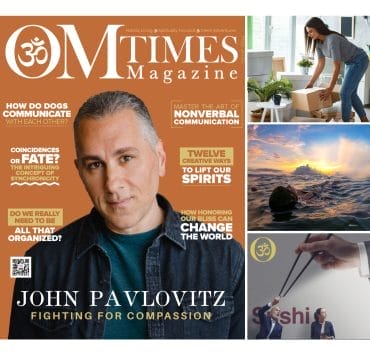In the realm of contemporary spiritual discourse, few voices resonate with the clarity and compassionate urgency of John Pavlovitz, a minister and author whose work transcends traditional religious boundaries. Pavlovitz, known for his inclusive approach and unwavering commitment to social justice, has become a beacon for those seeking a faith that embraces diversity and champions the underrepresented. In our feature, we delve into the journey of this influential figure, exploring how his deep convictions and unique perspective have shaped both his writing and ministry.
An Interview with John Pavlovitz: Worth Fighting For
From his humble beginnings to becoming a widely recognized voice on issues of faith, equality, and empathy, Pavlovitz’s story is one of profound evolution and steadfast purpose. His writings and sermons, marked by their accessibility and heartfelt honesty, speak to a wide audience, extending beyond the church walls to touch the lives of people from various walks of life. As we navigate the complexities of his journey, we uncover the inspirations and challenges that have fueled his mission to create a more inclusive and loving world. Join us as we explore the life and work of John Pavlovitz, a modern-day minister redefining what it means to lead with faith in an ever-changing world.
OMTimes: John, throughout your writing career, you’ve woven a rich tapestry of themes, delving into the complexities of religion, politics, race, grief, and the multifaceted realm of social justice. Each book has been a mirror reflecting the times and your deep insights. So, as we stand at the threshold of this latest work, I’m incredibly curious: What was the burning inspiration behind this particular book? What confluence of moments and motivations brought it to life in this specific chapter of your journey?
John Pavlovitz: I wrote this book to respond to a profound weariness that I’ve observed in good-hearted individuals everywhere. As we approach what may be the most crucial election year we’ve ever witnessed, the fate of the human and civil rights of a vast number of people hangs precariously in the balance. I’ve seen firsthand and have felt the fatigue of those who have been deeply engaged in recent struggles. It’s an unnatural state of affairs, this constant state of high alert, this relentless absorption of sorrow. Yet, the need for compassionate and courageous souls has never been greater in these challenging times.In “Worth Fighting For,” I explore the myriad battles we face: defending those we cherish, striving to realize the nation of our dreams, championing the causes that ignite our passion, and shaping a world that will be a proud legacy for future generations. This book also addresses the often-overlooked aspect of these struggles — the toll they take on our relationships and mental and physical well-being. I delve into how we navigate these tumultuous times while preserving our humanity and keeping alive the hope that fuels our fight. This work is my personal testament to the resilience, dedication, and unwavering spirit needed to face these monumental challenges.
 OMTimes: In the captivating tapestry of your book, the thread of ‘fighting’ weaves its way through every chapter, binding the narrative with a compelling tenacity. Within this spirited journey, I’m intrigued to know where you perceive the battle to be the most intense and challenging. In what arenas of life does this fight take the greatest toll, testing resilience to its limits? And, as readers traverse these pages, embarking on this journey alongside you, what treasures of insight or pearls of wisdom do you hope they will carry with them as they turn the final page?
OMTimes: In the captivating tapestry of your book, the thread of ‘fighting’ weaves its way through every chapter, binding the narrative with a compelling tenacity. Within this spirited journey, I’m intrigued to know where you perceive the battle to be the most intense and challenging. In what arenas of life does this fight take the greatest toll, testing resilience to its limits? And, as readers traverse these pages, embarking on this journey alongside you, what treasures of insight or pearls of wisdom do you hope they will carry with them as they turn the final page?
John Pavlovitz: I’ve come to understand that our struggles are often perceived as grand battles drawn along political or theological lines. However, through my experiences and reflections, I’ve realized the true nature of these conflicts is far more intimate and personal. It’s a revelation I delve deeply into my writings. Every piece of legislation, each doctrinal stance, every political argument, and the myriad battles waged on social media ultimately cascade down to a much more human scale. These issues infiltrate our daily lives, impacting our families, friendships, workplaces, and communities.
In this book, I explore how these broader issues manifest in our personal interactions, making the fight for what we deeply care about both challenging and complex. This is where the true battleground lies – not in the abstract realms of policy and dogma but in the very real context of our day-to-day relationships. My hope for my readers is twofold: that they emerge with a clearer understanding of what is truly important to them and find strength and encouragement in balancing their convictions with the health and well-being of their relationships. Maintaining our beliefs while nurturing our bonds with others is a delicate equilibrium, but it’s crucial for our collective progress and personal fulfillment. This insight is what I aim to convey and explore in my work.
OMTimes: The book’s subtitle is ” Finding Courage and Compassion when Cruelty is Tending.” Why are those two values so important right now?
John Pavlovitz: I’ve often reflected on the “poverty of empathy” that seems to be afflicting our society. This issue transcends political affiliations and religious traditions, leaving many decent people horrified at today’s world’s lack of understanding and compassion. I’ve observed an exclusionary, predatory, and angry movement gaining traction, acquiring power, and influencing society in ways that deeply concern me. The challenge has been figuring out the right moment and the appropriate manner to respond to this shift.
In my view, the foundation of an effective countermovement must be compassion. This starts with an unwavering commitment to recognizing and understanding the suffering of others. However, I’ve realized that merely understanding isn’t sufficient. There’s an urgent need for us to be bold in articulating our beliefs, to speak with clarity and specificity about our values and the practices we refuse to tolerate. It’s not enough to be internally disturbed by the injustices and atrocities we witness. We must stand as a visible and vocal force in the world, advocating for change. This is a critical time for our nation and our world. Now, more than ever, we need individuals who prioritize authenticity, even in the face of the consequences that this authenticity might bring. It’s about being true to our convictions and having the courage to express them, standing firm in our values amid a challenging and often hostile environment. I believe this is the path to creating a more empathetic and just world.
OMTimes: Why has abortion become such a pivotal issue for Conservative Christians, seemingly far less important than education, healthcare, or systemic racism, all of which should be “pro-life” concerns?
John Pavlovitz: As I reflect on it, I’ve come to see abortion as a peculiarly sanitized form of activism. In my observation, opposing abortion allows some religious individuals to bask in a kind of effortless moral superiority, a sort of intoxicating self-righteousness. It’s an activism that doesn’t demand the more challenging aspects of compassion — such as loving or aiding those they might fundamentally disagree with or dislike.
This ease, I believe, stems from the fact that embryos are a blank slate, free from the complex traits that might make empathy difficult for some. In their nascent state, they don’t carry the identifiers that often divide us: they’re not yet identifiable by their sexuality, religion, political beliefs, race, socioeconomic status, or religious skepticism. This makes them perfect vessels for idealization, uncomplicated symbols that don’t challenge the comfort zones of certain groups. They represent a cause that doesn’t require confronting or bridging the deep divides of tribalism that characterize so much of our social and political landscape.
In this way, the issue of abortion can be seen as a less demanding form of moral stance, one that doesn’t require engaging with the often messy, challenging reality of human diversity and complexity. It’s a form of activism that stays within the safe confines of certain ideological boundaries, avoiding the hard work of broader social and personal understanding and empathy.
OMTimes: In a world where religion is often envisioned as a beacon of love, compassion, and equity, it’s intriguing, yet perplexing, to observe the emergence of movements within religious spheres that paradoxically seem to stray from these core values. What do you think drives this contradiction? Why does a domain that should theoretically epitomize the highest ideals of humanity sometimes give rise to ideologies and practices that appear to stand in stark opposition to them?
John Pavlovitz: In my experience and observation, I’ve noticed a troubling trend: Numerous churches and ministers rely heavily on fear to motivate their congregations. This approach cultivates a mindset among the faithful that they are perpetually under siege, always facing some adversary, always bracing for a new threat, and always preparing for some metaphorical war. Such a theology thrives on creating a sense of urgency, constantly pressing on people’s fears and prejudices.
This kind of religious narrative often paints the world outside their community as harboring an ever-encroaching enemy, keeping the believers in a constant state of combat readiness. By leveraging fear in this way, these religious institutions tap into people’s deep-seated anxieties, manipulating them for the sake of cohesion and control.
Moreover, this situation is exacerbated by the innate human need for community and belonging. Many individuals, craving connection and fellowship, compromise their values, beliefs, or well-being to remain part of their religious community. This can lead to spiritually toxic environments where fear and conformity override compassion, understanding, and authentic spiritual growth.
It’s a phenomenon that deeply concerns me, as it can distort the true essence of faith and spirituality, turning what should be sources of hope, love, and community into instruments of control and division. Witnessing and understanding this dynamic has been a sobering aspect of my journey and observations.
OMTimes: You’ve been a pastor for over twenty-five years, now ministering in a virtual context to millions of people. What does organized Christianity look like in 50 years? Will the Church still be relevant?
John Pavlovitz: Reflecting on the evolution of spiritual communities, I’ve come to realize that the traditional notion of needing a specific geographic location or a fixed structure for such a community to exist is increasingly becoming outdated. This shift is immensely positive, as it symbolizes the liberation of our concept of God from the constraints of a physical building, typically accessible just for a few hours each week. It’s like we’re allowing the massive, ineffable idea of the divine to breathe and expand beyond the rigid confines of a church, temple, or mosque.
This transformation signifies a departure from the religious practices and traditions that many of us grew up with. We’re now witnessing the emergence of dynamic, open, and diverse communities that are not bound by strict adherence to conventional doctrines. Instead, these communities are unified by a shared commitment to promoting equity, justice, and healing in a variety of settings.
This change excites me because spirituality is being practiced in more relatable, accessible, and immediate ways. It’s no longer confined to a particular time and place. People are finding spiritual connection and expression in everyday settings and interactions. They are less focused on defending rigid beliefs and more invested in actively making a positive impact in the world, wherever they are. This evolution reflects a broader, more inclusive understanding of spirituality—one that embraces a variety of experiences and expressions and recognizes the value of bringing compassionate, just, and healing actions into every aspect of our lives.
OMTimes: With all the division, partisan politics, and religious tribalism we’re experiencing, what do you see as the greatest reason for hope?
John Pavlovitz: At one of my speaking events, I posed a question to the audience, prompting a particularly memorable response from a gentleman who took the microphone. He shared a profound insight with me and the rest of the audience. “John,” he began, “I navigate between two distinct newsfeeds in my life. One is the stream of information from Twitter, Facebook, and various news outlets, which invariably highlights division, hatred, and a constant stream of urgent crises. If I focus solely on this digital newsfeed, hopelessness sets in quite easily.”
He then elaborated on the second newsfeed in his life, one that was far more personal and local. “There’s another newsfeed, John, found in my own community. Here, I know people by their names, faces, and stories. I see people engaged in incredibly compassionate and generous work that doesn’t make national headlines or trend on social media.” He emphasized, “When I immerse myself in this local newsfeed, hope comes naturally.”
This gentleman’s perspective resonated deeply with me. It underscored an essential truth that I hold dear: the importance of balancing our attention between the large, distant events over which we have limited influence and the smaller, more immediate aspects of our lives where our impact can be profound. His words serve as a reminder that while it’s crucial to stay informed about global issues, it’s equally important not to overlook the power and potential of our local communities and personal interactions.
By engaging with and contributing to our immediate surroundings, we can find a sense of agency and hope that counterbalances the often-overwhelming nature of the broader world’s challenges. This approach has been instrumental in maintaining my own sense of hope and purpose in an increasingly complex world.
Connect with John John Pavlovitz at his website https://johnpavlovitz.com/
Click HERE to Connect with your Daily Horoscope on OMTimes!
Visit Our Astrology Store for Personalized Reports
OMTimes is the premier Spiritually Conscious Magazine. Follow Us On Facebook, Twitter, Instagram, Linkedin, Pinterest, and Youtube
OMTimes Magazine is one of the leading on-line content providers of positivity, wellness and personal empowerment. OMTimes Magazine - Co-Creating a More Conscious Reality










